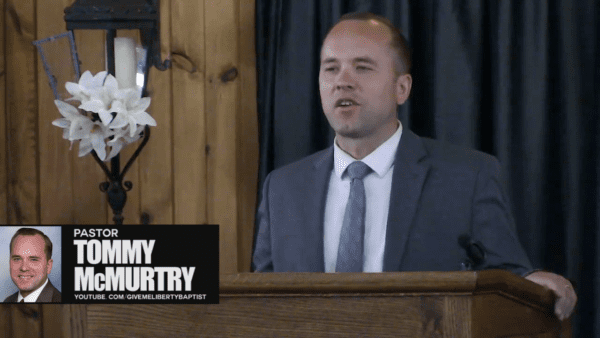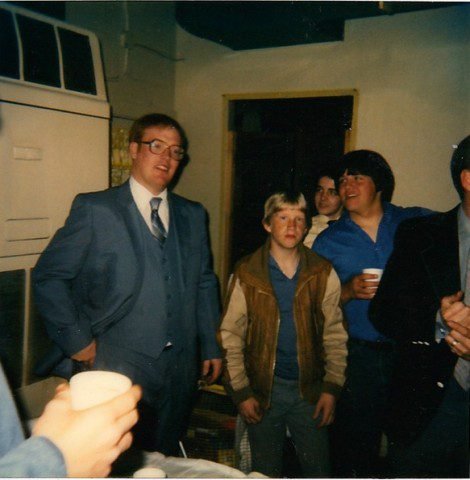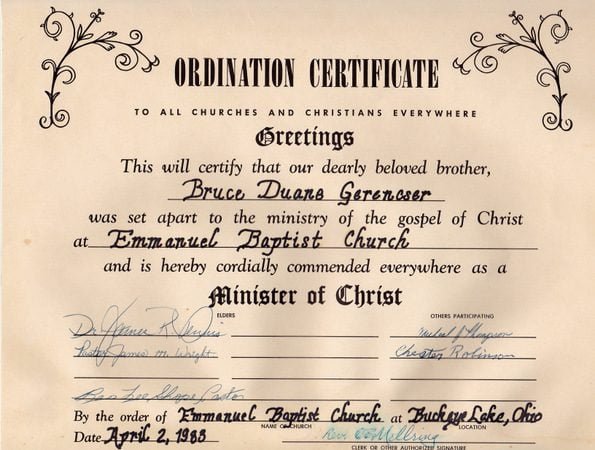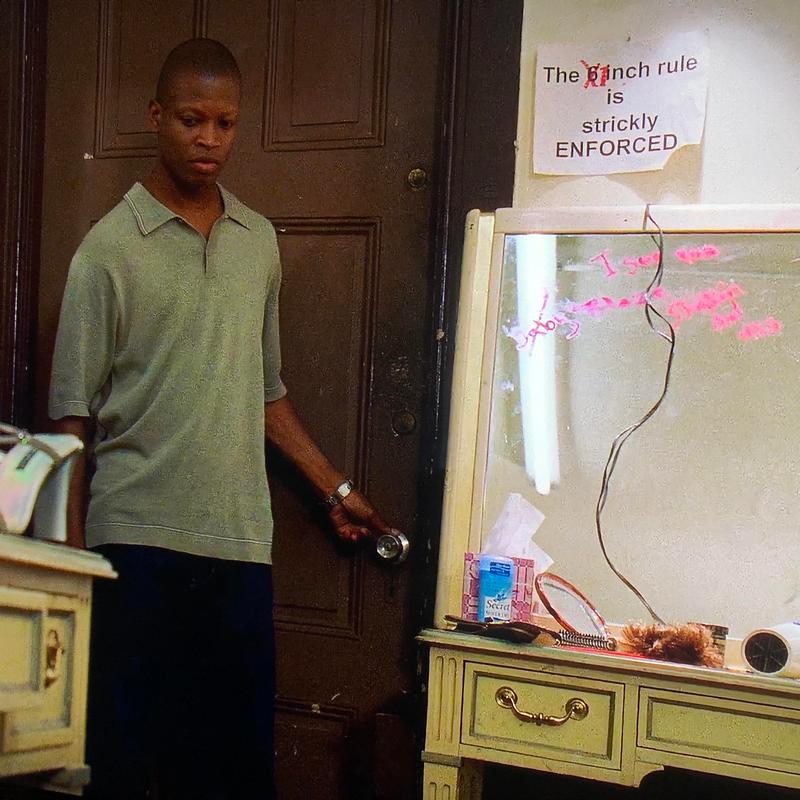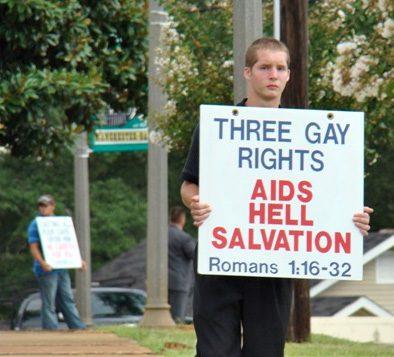
An Evangelical pastor I know posted the following statements on Facebook today:
I’d rather offend you into heaven…than sympathize you into hell…
The problem in Christianity is that we are hiding behind the need to be nice, while shying away from truth and true devotion… #thetruthhurtsjohn8:32
Where, oh, where, do I begin?
This pastor assumes that he has and knows the “truth.” He proof-texted John 8:32: And ye shall know the truth, and the truth shall make you free. In John 18 we find Jesus standing before Pilate:
Pilate: Art thou the King of the Jews?
Jesus: Sayest thou this thing of thyself, or did others tell it thee of me?
Pilate: Am I a Jew? Thine own nation and the chief priests have delivered thee unto me: what hast thou done?
Jesus: My kingdom is not of this world: if my kingdom were of this world, then would my servants fight, that I should not be delivered to the Jews: but now is my kingdom not from hence.
Pilate: Art thou a king then?
Jesus: Thou sayest that I am a king. To this end was I born, and for this cause came I into the world, that I should bear witness unto the truth. Every one that is of the truth heareth my voice.
Pilate: What is truth?
Pilate asks a good question, “What is truth?” Spoken like a good postmodernist, Pilate challenged Jesus’ claim that he was a witness to “truth.” Jesus does not answer Pilate, leaving the “truth” question unanswered. That, of course, hasn’t stopped Evangelical preachers and churches from answering the question themselves. If there is one thing we know about Evangelicals it is this: they are certain that they have the truth market cornered; that their beliefs and practices perfectly align with Jesus’ words when he said, “I am the way, the truth, and the life.” Evangelicals fail to understand that Jesus was talking about himself being the way, truth, and the life; not their beliefs, not their practices. The only “Bible” Jesus knew anything about was the Old Testament. You will search in vain to find Jesus or Christianity in the Old Testament. Jesus’ Bible was antithetical to the Evangelical gospel of salvation by grace through faith.
How could this pastor possibly know that he has the pure, unadulterated “truth?” Well, his whole understanding of truth is based on his childhood religious upbringing, tribal influences, sectarian education, and personal interpretation of the Bible. The only “truth” he has are his personal opinions and beliefs about God, Jesus, and the Bible. By faith — the ground of all religious beliefs — he believes his “truth” is the “faith once delivered to the saints.”
As an Evangelical, he believes the Protestant Christian Bible is the inspired, inerrant, infallible Word of God. Every word in the Bible is straight from the mouth of God, without error and fallibility. Believing God — in the person of the Holy Spirit — lives inside of him as his teacher and guide, is it a surprise that he thinks his “truth” is THE TRUTH? I have always found it amazing that what Evangelical preachers believe perfectly aligns with God’s “truth.” Amazing, right?
All this pastor has is his personal opinions and interpretations about an ancient religious text. He can provide little to no historical evidence for his “truth” claims outside of the Bible. That’s enough for him, and I am fine what that. Believe what you will, but when you claim you have “truth,” you are going to do a lot more than quote Bible verses or appeal to personal experiences to win me over to your side.
Evangelicals, along with Mormons, Jehovah’s Witnesses, and door-to-door siding salesmen, are known for their in-your-face evangelism tactics. They believe they have a duty and right to confront anyone, anywhere, at any time — including when you are lying on your deathbed or just experienced a traumatic event — and preach the gospel at them. Evangelicals believe death is certain, Hell is real, and Jesus is coming soon. Because they sincerely, honestly believe these things, Evangelicals think that this gives them the right to invade the personal space of others. Several weeks ago, my oldest son had an Evangelical zealot try to preach at him while he was pumping gas! I have been repeatedly God-bothered by zealots over the years, thinking I have tattooed on my forehead, “Please Tell Me About Jesus.” I don’t, and I, along with every other unbeliever I know, want to be left alone. If we want to know about God, Jesus, the Bible, Christianity, or your supercalifragilisticexpialidocious church, we will ask. If not, leave us alone.
Of course, this preacher will ignore what I have written here, believing that I am deceived, apostate, or a tool of Satan; that he has a higher calling from God, and that calling compels him to irritate, harass, and bother unbelievers. While he would likely say that he doesn’t want to offend anyone or hurt their feelings, he would also say, “Sometimes the truth hurts.” In other words, what you feel or think doesn’t matter. And therein is the fundamental problem with Evangelicalism: all that matters is your non-existent soul and eternal destiny. Who cares if an Evangelical zealot is a Bible bully or an asshole as long as you get saved and gain entrance into Heaven?
You see, Evangelicals are taught over and over and over again that this present life is transitory; that it is preparation for the life to come. The only thing that matters is “What have you done with Christ?” (Answer: I took a spade, dug a hole in our backyard, and buried Jesus, right next to our cat who died a few years ago.) 🙂 While Evangelical lifestyles betray how Heavenly-minded they really are, when it comes to evangelizing the unwashed, uncircumcised Philistines of the world, all that matters is saving souls.
Several weeks ago, I had a five-hour gastric motility test performed at the local hospital. I had to eat food laced with nuclear medicine that was tracked every hour with a scan as it traversed my stomach and bowels. As I sat there, I couldn’t help but notice all the suffering around me. A woman dying from cancer, weighing less than seventy-five pounds; a woman having a similar test, except she had bowel cancer; a man having radiation treatments. Into our suffering came a seventy-something-year-old Evangelical man Heaven-bent on evangelizing the dying. (I watched Polly silently mouth a prayer, asking Loki to keep this man from saying anything to me. 🙂 Loki answered her prayer. I have no tolerance for such people. I am not afraid to publicly shame them and put them in their place.) This man had an interesting schtick. He sat down next to the bald elderly woman with bowel cancer — a woman he did not know — and said, “Do you like comics?” The woman, who was very, very, very sick, said, “Huh?” He responded, “Do you like comics?” She replied, “No, not really.” Thinking to himself, “I don’t give a shit about what you think,” the man replied “Anyway — a word that says I am not listening to you; I don’t care how you feel — get your phone out and go to https://chick.com. Again, the woman said, “Huh?” He replied, “Chick. They have lots of interesting comics. You should really check them out!” With head turned away from God-botherer, the woman replied, “I will, but not now.” Fortunately, the radiologist came and rescued the woman from her abuser.
Let me conclude by sharing a few things with the aforementioned pastor and any “soulwinners” who might read this post.
First, if I want to know about your God, religion, church, or the Bible, I will ask you. If not, leave me alone. Most people know that religion and politics rarely make for good conversation among strangers.
Second, if you value your peculiar “truth” above being nice and polite, I have no interest in talking with you. Want to talk about Jesus? Go to church. I have dinner once a month with a group of like-minded men. We talk about all sorts of things, including religion and politics. We have a common foundation for having these discussions. I would never go to a nearby table of Trump supporters and say to them, “Did you know Donald Trump is an asshole?” Not the time or the place. True statement, but as a kind, thoughtful human being, I don’t go out of my way to offend my neighbors. Sadly, Evangelical zealots think they have a God-given right and duty to offend unbelievers.
Third, I am not asking you to stop believing what you believe. I am, however, asking you to be aware of your surroundings; to be aware of how your preaching will affect and negatively influence others. How many strangers have you personally won to saving faith in Christ by invading their personal space and cornering them so you can preach at them? One, two, a few, none? Have you ever wondered why that is? That maybe, just maybe, you are the problem, and not their hard hearts, blind eyes, or deaf ears, or any of the other lame excuses you use to justify your soulwinning failures.
Fourth, Jesus doesn’t need you to save me or any other sinner. If he wants to save us, he knows exactly where we live. Instead of preaching at people, how about putting into practice the teachings of Jesus found in the Sermon on the Mount (Matthew 5-7) and Matthew 25? Show us your faith instead of preaching at us. Maybe, just maybe, if you live as if this life and your fellow humans really matter and you want to do all you can to help others — especially the least of these — maybe unbelievers might be inclined to look at Christianity more favorably. As it stands now, Evangelicalism is one of the most hated sects in America. When the world sees Evangelicals filled with the fruit of the Spirit: love, joy, peace, forbearance, kindness, goodness, faithfulness, gentleness, and self-control, maybe they will have a different opinion of Christianity. As it stands now, all I see is an Evangelical preacher who doesn’t think love, forbearance, kindness, goodness, or gentleness are important if they get in the way of preaching the gospel.
After writing this post, I came upon an article by a Roman Catholic extolling being an asshole for Jesus:
We, as a culture, hate insults. We love to accuse people of “verbal abuse” or “hate speech.” Everyone should know better than to insult others. It would be best to completely eradicate insults from all social interactions whatsoever. Why shouldn’t we? Insults are belittling, rude, and may even hurt the feelings of others. All things considered, insults are just plain mean. The very idea of disparaging words serves to send shivers down the spines of even the most resilient souls of our generation.
There are several problems, however, with believing that all insults are bad and should be eradicated.
….
Too many of the souls of this world are running toward the gaping mouth of Hell, and as Christians we are sternly exhorted not to just casually let them go. If we let this God-hating culture tell us when we may speak and when we must be silent, we are rejecting Christ as surely as if we rejected Him in the poor. Our brothers are trying to throw themselves off bridges and in front of buses. If it takes rebukes—or even insults—to stop them, then let us not be afraid of the charity that requires.
Bruce Gerencser, 68, lives in rural Northwest Ohio with his wife of 47 years. He and his wife have six grown children and sixteen grandchildren. Bruce pastored Evangelical churches for twenty-five years in Ohio, Texas, and Michigan. Bruce left the ministry in 2005, and in 2008 he left Christianity. Bruce is now a humanist and an atheist.
Your comments are welcome and appreciated. All first-time comments are moderated. Please read the commenting rules before commenting.
You can email Bruce via the Contact Form.





